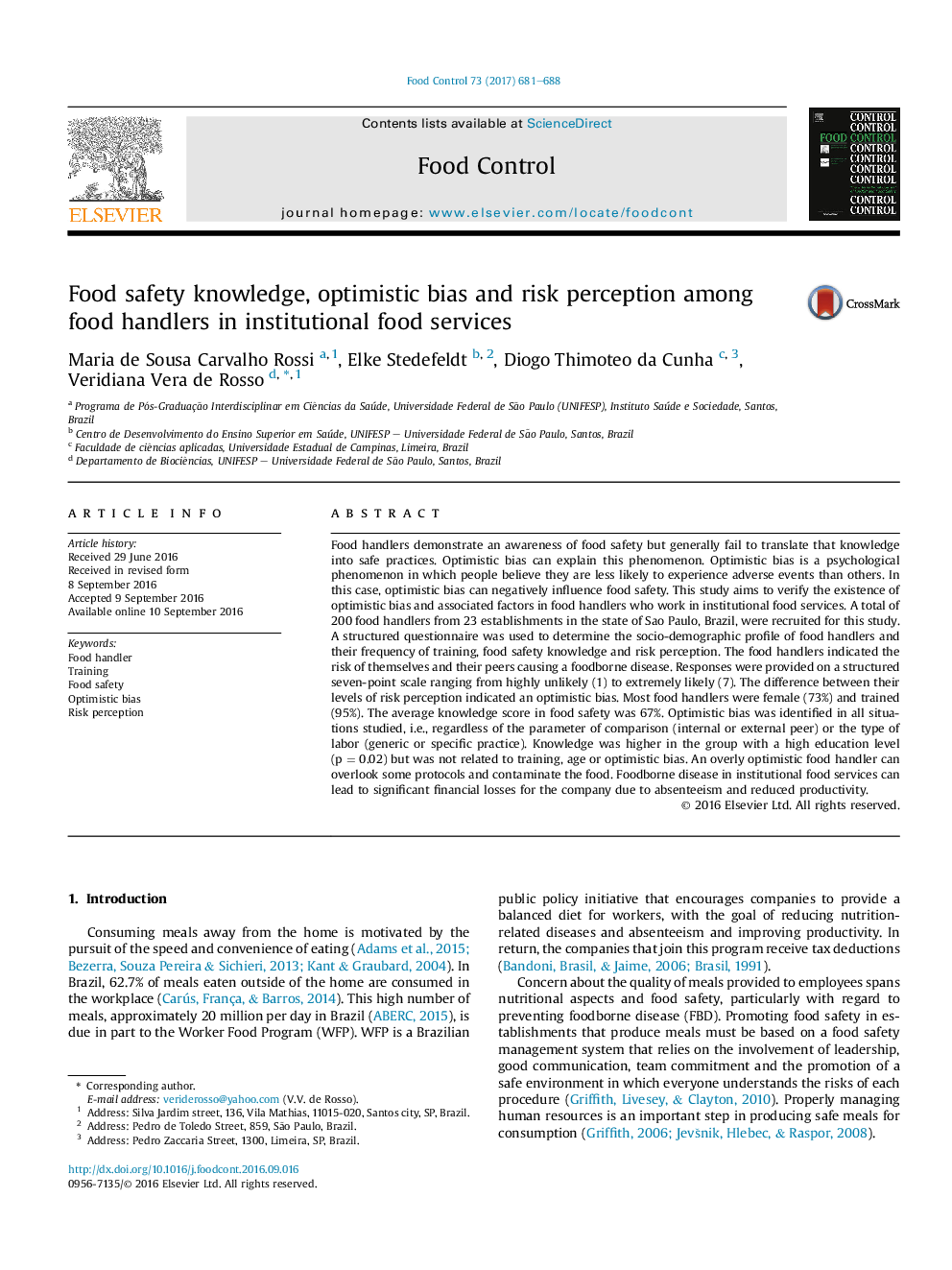| کد مقاله | کد نشریه | سال انتشار | مقاله انگلیسی | نسخه تمام متن |
|---|---|---|---|---|
| 5767694 | 1413202 | 2017 | 8 صفحه PDF | دانلود رایگان |
- The optimistic bias phenomenon was identified in food handlers.
- The optimistic bias was identified regardless of the parameter of comparison.
- It was observed that food handlers have knowledge of microbiological risks.
- Risk perception has weak association with food safety knowledge.
Food handlers demonstrate an awareness of food safety but generally fail to translate that knowledge into safe practices. Optimistic bias can explain this phenomenon. Optimistic bias is a psychological phenomenon in which people believe they are less likely to experience adverse events than others. In this case, optimistic bias can negatively influence food safety. This study aims to verify the existence of optimistic bias and associated factors in food handlers who work in institutional food services. A total of 200 food handlers from 23 establishments in the state of Sao Paulo, Brazil, were recruited for this study. A structured questionnaire was used to determine the socio-demographic profile of food handlers and their frequency of training, food safety knowledge and risk perception. The food handlers indicated the risk of themselves and their peers causing a foodborne disease. Responses were provided on a structured seven-point scale ranging from highly unlikely (1) to extremely likely (7). The difference between their levels of risk perception indicated an optimistic bias. Most food handlers were female (73%) and trained (95%). The average knowledge score in food safety was 67%. Optimistic bias was identified in all situations studied, i.e., regardless of the parameter of comparison (internal or external peer) or the type of labor (generic or specific practice). Knowledge was higher in the group with a high education level (p = 0.02) but was not related to training, age or optimistic bias. An overly optimistic food handler can overlook some protocols and contaminate the food. Foodborne disease in institutional food services can lead to significant financial losses for the company due to absenteeism and reduced productivity.
Journal: Food Control - Volume 73, Part B, March 2017, Pages 681-688
